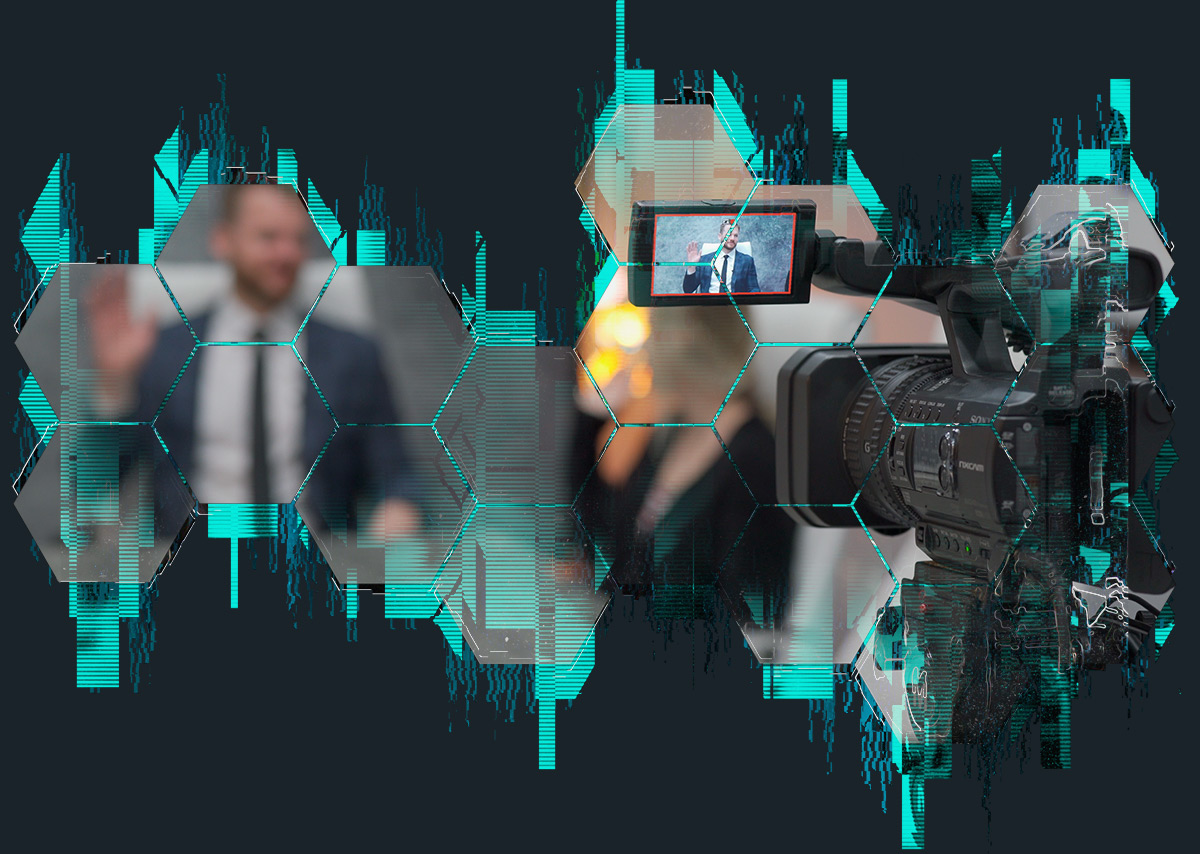The Significance of Legal Video Clip Depositions in Modern Legal Solutions: What You Must Know
Legal video depositions have actually become vital in today's lawful landscape. They supply a multidimensional view of witness statements that standard records just can not match. By catching both spoken and non-verbal interaction, these depositions enhance the total understanding of a witness's reputation. However, the efficiency of video clip depositions rests on different elements, including compliance with legal standards and finest practices (legal video depositions). Checking out these elements exposes their real importance in modern-day legal solutions
What Are Legal Video Depositions?
Legal video clip depositions function as an essential tool in the litigation process. They include taping witness testaments in a video format, catching both non-verbal and verbal communication. This method enables attorneys to document the disposition, expressions, and responses of witnesses, providing a richer context for the testimony. Commonly conducted in a controlled atmosphere, these depositions are led by attorneys who ask concerns while a court press reporter records the discussion. The resulting video clip can be crucial for test prep work, as it enables lawyers to analyze the integrity of witnesses and refine their techniques. Additionally, lawful video depositions can be made use of in numerous lawful contexts, ranging from civil disagreements to criminal instances. The aesthetic and acoustic components of video depositions boost the discussion of proof, making it an important part in the modern legal landscape. Generally, they add significantly to the effectiveness and efficiency of legal proceedings.

Advantages of Video Clip Depositions Over Standard Methods
Video clip depositions use countless advantages contrasted to traditional methods of taking witness testaments. One significant benefit is the capacity to record both audio and visual aspects, providing an extra extensive record of the witness's statements. This twin style enhances clearness and permits lawyers to reference details nuances throughout test preparation. Additionally, video clip depositions promote remote involvement, making it less complicated for witnesses that may be inaccessible for in-person looks due to geographical restraints or health issues.Moreover, video depositions can quicken the overall deposition process, minimizing the moment and prices related to travel and logistics. They additionally enhance availability, as recorded depositions can be easily shared amongst lawful groups and referenced at any moment. This convenience adds to better instance management and preparation. Generally, video clip depositions stand for a contemporary, reliable method to gathering witness testimonies, lining up with the developing demands of the legal career.
The Function of Body Movement and Tone in Testimonies

In lawful video clip depositions, body language and tone play essential duties in conveying a witness's reliability and credibility. Nonverbal hints can give insights right into a witness's emotion, affecting just how their testament is regarded. Comprehending the effect of these aspects is necessary for lawyers and jurors alike when examining the integrity of a testament.
Nonverbal Communication Insights
While verbal communication is usually emphasized in legal testaments, nonverbal signs such as body language and tone play a vital role in sharing reputation and feeling. Onlookers of depositions might keep in mind that a witness's stance, motions, and faces can significantly influence understandings of dependability. Consistent eye call may signify confidence, while avoiding gaze might suggest dishonesty or pain. The tone of voice-- its speed, quantity, and pitch-- can pass on feelings of genuineness or uncertainty. Attorneys need to be attuned to these nonverbal signals, as they often offer important context that complements spoken words. Comprehending these nuances can boost the effectiveness of depositions and influence the outcome of legal process.
Emotional Tone Impact
The psychological tone communicated during lawful statements greatly affects just how a witness is perceived. Body movement, singing inflections, and faces play vital functions fit the narrative of a statement. A witness showing self-confidence with consistent eye contact and a tranquil tone can instill a sense of dependability and engagement. On the other hand, signs of anxiety, such as fidgeting or an unsteady voice, may bring about uncertainty concerning their account. The subtleties of psychological expression can affect the analysis of truths, making it essential for lawyers to acknowledge these cues. In video clip depositions, the aesthetic and auditory components integrate, highlighting the significance of psychological tone in communicating genuineness and truthfulness within the legal procedure.
Integrity and Credibility
An essential consider establishing reliability and reliability throughout statements hinges on the witness's body movement and intonation. Onlookers typically count on non-verbal hints-- such as eye get in touch with, stance, and gestures-- to assess a witness's genuineness. A witness that preserves eye contact and presents open body language might be perceived as even more reliable and truthful than one that prevents eye call or appears shut off. Furthermore, intonation plays a crucial role; visit the website a stable, calm tone can reinforce the trustworthiness of the testimony, while fluctuations in pitch or quantity might elevate uncertainties. Ultimately, the mix of body movement and singing tone greatly affects how a witness's declarations are received and analyzed in a legal context.
Best Practices for Carrying Out Video Depositions
Carrying out video clip depositions needs cautious preparation and implementation to ensure a reliable and clear discussion of testament. It is vital to select a quiet, well-lit area to decrease disturbances and safe ideal video top quality. The equipment should be checked ahead of time, consisting of video cameras, microphones, and lighting, to stay clear of technical concerns throughout the deposition.Next, events entailed should review the layout and procedures in advance, making certain that every person recognizes their roles. The deponent ought to be briefed on the procedure, including how to respond plainly and concisely.Additionally, maintaining an expert demeanor throughout the session is vital. This includes avoiding from talking over one an additional and confirming that all inquiries are guided suitably. Finally, it is vital to tape-record the deposition in a style that permits simple playback and review, maintaining the integrity of the statement for future usage.
Legal Factors To Consider and Conformity Issues
Exactly how do legal factors to consider and compliance concerns affect the efficiency of video clip depositions? Attorneys should browse a complicated landscape of laws, making certain that video clip depositions comply with administrative regulations and standards. Compliance with laws concerning privacy, consent, and taping techniques is essential. Getting specific permission from all celebrations involved is necessary to avoid lawful repercussions.Additionally, the admissibility of video proof in court can hinge on conformity with procedural requirements. Guaranteeing that the equipment utilized meets technological requirements is likewise essential, as low quality can undermine the deposition's reliability.Moreover, lawyers must be aware of any details state regulations that control video depositions, as these can differ considerably. Failure to attend to these considerations can not only endanger the stability of the deposition yet also influence the overall situation approach, inevitably impacting the customer's legal outcomes.
Exactly How Video Depositions Effect Jury Understanding
While video clip depositions can act as effective tools in legal process, their impact on jury understanding is substantial. The auditory and visual elements of Extra resources video recordings offer jurors with a more extensive understanding of witness disposition, reputation, and psychological responses. This multimedia technique can enhance the jurors' capability to analyze the reliability of testament contrasted to standard text-based transcripts.Moreover, video depositions allow jurors to observe body movement, intonation, and facial expressions, all of which can impact their interpretation of the witness's statements. The existence of a witness on display can humanize them, fostering compassion and connection, which may sway jurors' point of views. Conversely, a witness that shows up evasive or unreliable on video clip might cause adverse perceptions that influence a court's decision. Eventually, the vibrant nature of video clip depositions plays an essential function in shaping exactly how jurors translate evidence and reach their judgments.
The Future of Video Clip Depositions in Legal Method
As developments in innovation remain to reshape the lawful landscape, the future of video depositions is positioned for significant development. Developments such as expert system, online reality, and boosted video conferencing tools are anticipated to simplify the deposition procedure and improve accessibility. Attorneys may utilize AI-driven analytics to evaluate witness reputation and instance stamina more effectively.Moreover, the assimilation of digital truth could allow courts to experience immersive simulations of depositions, supplying much deeper context and understanding. In addition, the trend toward remote depositions is most likely to linger, providing better versatility for attorneys and clients alike.As remote job becomes progressively normalized, video depositions will likely come to be typical method, minimizing expenses and time constraints connected with standard techniques. In general, these technical innovations promise to boost the effectiveness, effectiveness, and ease of access of video depositions in legal technique, eventually changing just how legal professionals prepare for test.
Frequently Asked Concerns
Just How Much Do Legal Video Clip Depositions Commonly Cost?

Can Video Depositions Be Made Use Of in Any Type of Instance?
Video depositions can be made use of in different sorts of instances, consisting of civil, criminal, and household legislation. Their versatility enables attorneys to existing witness testimonies properly, adjusting to the particular requirements of various lawful scenarios.
What Equipment Is Required for a Video Deposition?
To perform a video deposition, vital devices includes a high-grade video camera, microphone, lighting, and a trusted recording gadget. In addition, a computer with editing and enhancing software application might be required for post-production and formatting the last video clip.
How Lengthy Does a Typical Video Clip Deposition Last?
A normal video deposition lasts in between two to four hours, relying on the intricacy of the case and the variety of concerns presented. Prolonged sessions may occur, however breaks are typically incorporated for individual convenience.

Are Video Clip Depositions Admissible in Court?
Video depositions are typically acceptable in court, provided they follow legal standards and guidelines of proof. Their use enhances clarity and preserves witness statement, assisting in the judicial procedure during tests and hearings. Lawful video depositions have actually ended up being necessary in today's lawful landscape. In addition, legal video depositions can be utilized in different lawful contexts, varying from civil conflicts to criminal situations. Additionally, video depositions facilitate remote engagement, making it simpler for witnesses who might be inaccessible for in-person appearances browse around this site due to geographical restrictions or health issues.Moreover, video clip depositions can accelerate the general deposition procedure, minimizing the time and prices linked with traveling and logistics. Guaranteeing that the devices made use of fulfills technological requirements is likewise important, as poor high quality can weaken the deposition's reliability.Moreover, attorneys need to be conscious of any type of details state laws that regulate video clip depositions, as these can vary substantially. Additionally, the fad toward remote depositions is most likely to linger, providing better versatility for clients and attorneys alike.As remote work ends up being progressively stabilized, video depositions will likely end up being conventional practice, lowering prices and time constraints linked with typical methods.